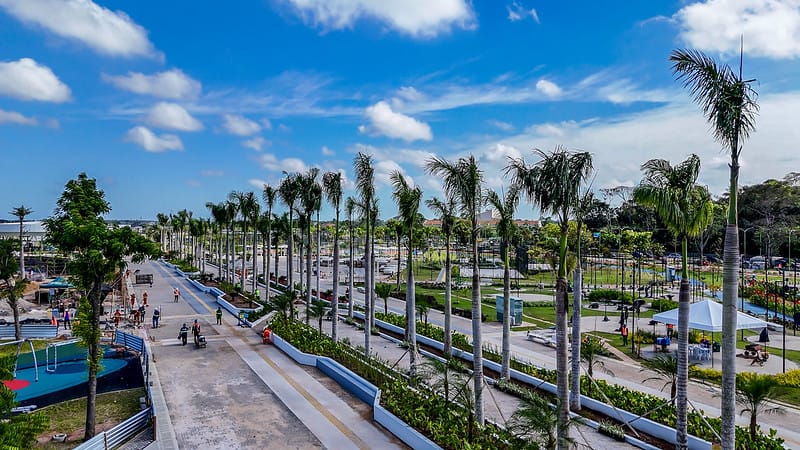COP30 signs contracts for structures, begins assembly phase in Belém
Temporary structures will begin to be assembled in July and will be installed at Parque da Cidade, a strategic area in Belém being prepared to host the conference’s two main venues

On Tuesday, June 3, the Organization of Ibero-American States (OEI), the organizer of COP30, formalized the contract with the companies responsible for building the temporary structures for the 30th United Nations Climate Change Conference (COP30). The conference will take place in Belém, state of Pará, in November 2025. This marks the start of the installation phase, six months ahead of the world’s largest multilateral event.
DMDL was contracted to build the Blue Zone, which is overseen by the United Nations Framework Convention on Climate Change (UNFCCC). This is where official negotiations between delegations and the Leaders' Summit will take place. The Pronto RG Consortium will assemble the Green Zone, which is coordinated by the Brazilian government. This space is dedicated to civil society, subnational governments, businesses, scientific institutions, and social movements.
After the contracts are signed, the companies will start developing the executive and supplementary projects and mobilizing equipment. Construction of the temporary structures for the Blue and Green Zones is expected to begin in early July. These structures will be installed at Parque da Cidade, a strategic area in Belém being prepared to host the conference’s two main venues.
These contracts mark the official beginning of the construction phase and demonstrate Brasil’s dedication to hosting a first-rate event. As required by the process, the contracts were preceded by a detailed technical review conducted by the Special Secretariat for COP30 and overseen by Brasil’s Office of the Comptroller General (Controladoria-Geral da União/CGU). This stage included renegotiations and the exclusion of certain items, resulting in a BRL 7.3 million cost reduction compared to the original proposals.
Such adjustments are standard in public procurement processes, as outlined in Article 61 of Brasil’s national procurement law. The aim is to align contracts with the practical needs of the event and ensure the efficient use of public funds. For this process, the OEI adopts national public procurement norms by analogy.
After the contracts are formalized, the selected companies will be responsible for commercializing spaces, such as pavilions and delegation offices. This is a standard procedure for all COP events.
English Version: Trad. Bárbara Menezes
Proofreading by Enrique Villamil

